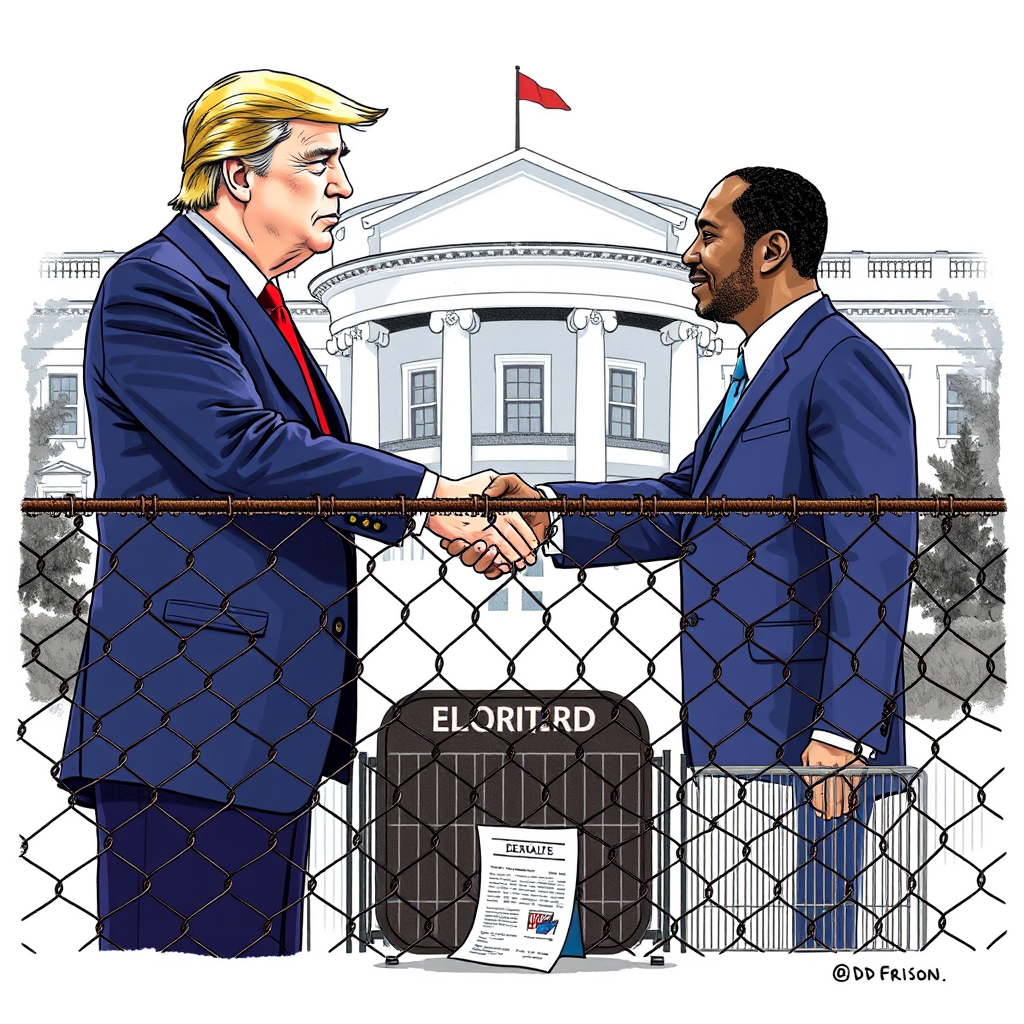Bukele Visits Trump Amid Controversial Deportation Deal

Washington – A controversial visit by El Salvador President Nayib Bukele to the White House this week highlights a pragmatic, if uneasy, alliance forged with the Trump administration over immigration and security. Bukele’s trip comes as El Salvador increasingly functions as a key component in the U.S.’s efforts to manage and deflect responsibility for a complex immigration situation, specifically regarding the deportation of individuals to a nation grappling with its own internal struggles.
Since March, El Salvador has accepted over 200 Venezuelan immigrants from the U.S., individuals the Trump administration alleges have ties to gang activity and violent crime – claims largely unsubstantiated by publicly available evidence. These deportees are being held in a newly constructed, maximum-security prison outside San Salvador, a facility built as part of Bukele’s aggressive crackdown on gang violence. The arrangement, costing the U.S. approximately $6 million for a year of imprisonment, has drawn criticism from human rights groups and legal experts.
The situation is further complicated by the case of Kilmar Abrego Garcia, a Maryland resident and Salvadoran citizen wrongly deported despite court orders preventing his removal. While the Trump administration initially resisted his return, pressure from the Supreme Court may force a reversal, though the administration’s commitment remains ambiguous.
President Trump has openly praised Bukele’s efforts, stating he is “doing a fantastic job” and “taking care of problems” the U.S. couldn’t afford to address itself. This sentiment underscores a troubling willingness to outsource responsibility for complex issues, potentially at the expense of due process and human rights. The administration has even floated the idea of El Salvador accepting American citizens convicted of violent crimes, a proposition that raises serious legal and ethical questions.
Bukele’s government has arrested over 84,000 people in its three-year crackdown on gangs, operating under a state of emergency that suspends certain basic rights. While this has garnered popular support within El Salvador, it has also raised concerns about the erosion of democratic norms. The current arrangement appears to be a quid pro quo, with Bukele seeking potential relief from a 10% tariff imposed by the Trump administration.
The visit is a stark illustration of how geopolitical expediency can overshadow concerns about human rights and the rule of law. While reducing gang violence is a legitimate goal, the current approach risks creating a system where individuals are deported to countries with questionable human rights records, and due process is sacrificed in the name of political expediency. It’s a troubling precedent, and one that demands greater scrutiny and a more principled approach to immigration and security. The long-term consequences of this alliance, both for El Salvador and the United States, remain to be seen, but the current trajectory is deeply concerning. The focus should be on addressing the root causes of migration and ensuring that all individuals are treated with dignity and respect, regardless of their origin or immigration status.